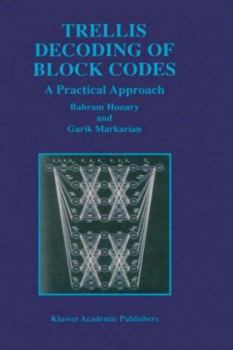Trellis Decoding of Block Codes: A Practical Approach
Select Format
Select Condition 
Book Overview
It is a great pleasure to be asked to write the Preface for this book on trellis decoding of error correcting block codes. The subject is extremely significant both theoretically and practically, and is very timely because of recent devel- opments in the microelectronic implementation and range of application of error-control coding systems based on block codes. The authors have been notably active in signal processing and coding research and development for several years, and therefore very well placed to contribute to the state of the art on the subject of trellis decoding. In particular, the book represents a unique approach to many practical aspects of the topic. As the authors point out, there are two main classes of error control codes: block codes and convolutinal codes. Block codes came first historically and have a well-developed mathematical structure. Convolutional codes come later, and have developed heuristically, though a more formal treatment has emerged via recent developments in the theory of symbolic dynamics. Max- imum likelihood (ML) decoding of powerful codes in both these classes is computationally complex in the general case; that is, ML decoding fails into the class of NP-hard computational problems. This arieses because the de- coding complexity is an exponential function of key parameters of the code.
Format:Hardcover
Language:English
ISBN:0792398602
ISBN13:9780792398608
Release Date:February 1997
Publisher:Springer
Length:265 Pages
Weight:1.50 lbs.
Dimensions:0.7" x 6.1" x 9.2"
Customer Reviews
0 rating





